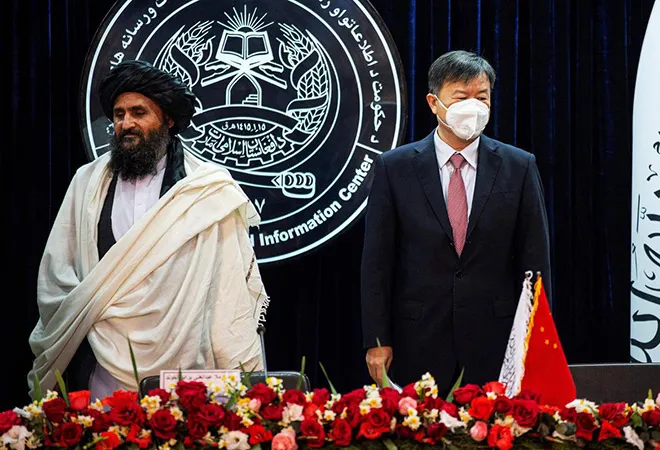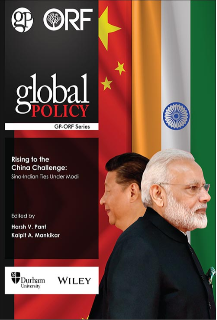
As 2021 came to an end, the international society has realised but not recognised the new status-quo in Afghanistan. A stalemate between the international society and the Taliban is growing more evident as the former is keen on securing its values and interests, while the latter has favoured maintaining internal cohesion and unity. Nevertheless, new policy alternatives are likely to emerge in 2022, but only if and when the Taliban affords to reform or demonstrate their capability to mitigate other country’s apprehensions.
The international response: Where values and interests converge
The Taliban’s lack of recognition is a product of norms and values in international politics and foreign policymaking. Regardless of the realist façade that dictates most humanitarian actions, certain values still determine the partakers and outcasts of the modern international society. And this is where most of the international society’s response to the Taliban converges.
Evidently, most
states have proposed similar pre-conditions to recognise the Taliban government. These include asking the Taliban to uphold women and human rights, ensure equality and protect all Afghans, form an inclusive government, provide amnesty for individuals who worked with the Afghan government, and not harbour or promote terrorist groups in Afghanistan. Recognising the new regime before fulfilling these conditions, therefore, risks running parallel to the international society’s values and also empowering more pariahs and extremist outfits. This domino effect will also challenge the prevalent world order and the modern state system. Thus, indicating why states are reluctant to recognise the new government.
The Taliban’s control over Afghanistan’s diverse demography, investments, and geoeconomic and geopolitical positioning also has vital implications for the interests of several states, especially its neighbours.
In addition, the Taliban’s control over Afghanistan’s diverse demography, investments, and geoeconomic and geopolitical positioning also has vital implications for the interests of several states, especially its neighbours. The Taliban is thus responsible to protect Afghanistan's economic investments and projects, and securing and incorporating minority communities, such as Tajiks, Uzbeks, Shias, Sikhs, and Hindus.
Similarly, the Taliban is also responsible to mitigate the social, security, and economic threats emanating from Afghanistan. The Taliban has largely sustained their regime and militancy by
nurturing links with other terror outfits, traffickers, smugglers, and criminals. These
links have had several transnational implications, as seen with the Uyghur militants, Tehreek-e-Taliban (TTP), Islamic Movement of Uzbekistan, Al-Qaeda, and other anti-Shia and anti-India militants. Thus, several states have withheld the new regimes’ recognition until it demonstrates its willingness and capability to mitigate these apprehensions and concerns.
The Taliban dilemma:
The Taliban has also hesitated to oblige to any of these demands. Despite some
half-hearted attempts, they have mostly remained loyal to their ideological commitments. The government
continues to be Pashtun and male-dominated, while restrictions on women are
increasing every day. The prospects of inclusive and people-supported government are also being ruled-out with the election commission now being
dissolved. Similarly, the Taliban continues to interact with other terrorist organisations, while its cadres conduct
targeted and extra-judicial killings along with brutal and archaic
executions.
The Taliban have been stubborn to reform because of their
objective of maintaining internal cohesion and strength. The Taliban is a conglomerate of different factions, groups, and sub-groups with various loyalties, interpretations, and influences, unified to establish an Islamic Emirate. Consequently, the organisation has for long
avoided any debates that can harm their cohesion and thereby the regimes’ survival.
The Taliban continues to interact with other terrorist organisations, while its cadres conduct targeted and extra-judicial killings along with brutal and archaic executions.
The Taliban has thus been hesitant to make bounding decisions over women education and employment, human rights, international obligations, etc. Even promoting democracy, inclusive government, and proportional representation has been difficult for the organisation, considering how these themes have been reflected as un-Islamic, corrupt, and instruments of the infidel. The Taliban has also found it difficult to convince its cadres and radicalised fighters to give up on targeted killings, forced disappearances, and brutal punishments since the latter find it easy and justifiable to indulge in violence and
brutal repression rather than taking part in fair administration.
Finally, the Taliban has also enjoyed significant material benefits, ideological sympathy, and cooperation from other terror outfits while fighting against the West. Evidently, the TTP recently
pledged its allegiance to the former, while the Taliban’s links with
Al-Qaeda remain unsevered. Even distancing with other anti-India and anti-Shia outfits may also become difficult for the regime, as
Haqqanis—the terror lynchpins and proxies of ISI continue to hold significant power in the Taliban government. Even more so, such abandonment of fellow-terror outfits might weaken the support and strength of the Taliban while also pushing them towards the IS-K. This might be disastrous for the organisation, especially at a time when the IS-K is putting all its efforts to
brand the Taliban as a compromised and un-Islamic organisation.
The Taliban has, therefore, been hesitant to abide by any of these demands. They have rather continued to demand recognition and assistance by
leveraging the country’s looming humanitarian crisis.
Moving ahead: Alternative policy choices?
As 2021 came to an end with the international society–Taliban stalemate, the year 2022 will likely bring new policy choices and alternatives, depending on the Taliban’s willingness and capability to reform or mitigate others’ apprehensions.
The Taliban has also enjoyed significant material benefits, ideological sympathy, and cooperation from other terror outfits while fighting against the West.
Yet, if one has to recognise the Taliban, the organisation has to abide by international laws and values. But considering Afghanistan’s geopolitical and geoeconomic significance, countries will try to woo the regime even without recognising it. This phenomenon had
already begun to take shape in 2021.
But the intensity of wooing, however, largely depends on the Taliban’s ability to mitigate apprehensions of certain countries. For instance,
China only needs security guarantees from the Taliban, and if the organisation succeeds in the former, it might win favours through economic investments and bilateral cooperation. This will also increase the diplomatic help and assistance to the Taliban from other competing regional and major powers. These policy alternatives, however, largely depend on how the Taliban will respond in the coming days.
The views expressed above belong to the author(s). ORF research and analyses now available on Telegram! Click here to access our curated content — blogs, longforms and interviews.



 As 2021 came to an end, the international society has realised but not recognised the new status-quo in Afghanistan. A stalemate between the international society and the Taliban is growing more evident as the former is keen on securing its values and interests, while the latter has favoured maintaining internal cohesion and unity. Nevertheless, new policy alternatives are likely to emerge in 2022, but only if and when the Taliban affords to reform or demonstrate their capability to mitigate other country’s apprehensions.
As 2021 came to an end, the international society has realised but not recognised the new status-quo in Afghanistan. A stalemate between the international society and the Taliban is growing more evident as the former is keen on securing its values and interests, while the latter has favoured maintaining internal cohesion and unity. Nevertheless, new policy alternatives are likely to emerge in 2022, but only if and when the Taliban affords to reform or demonstrate their capability to mitigate other country’s apprehensions.
 PREV
PREV


